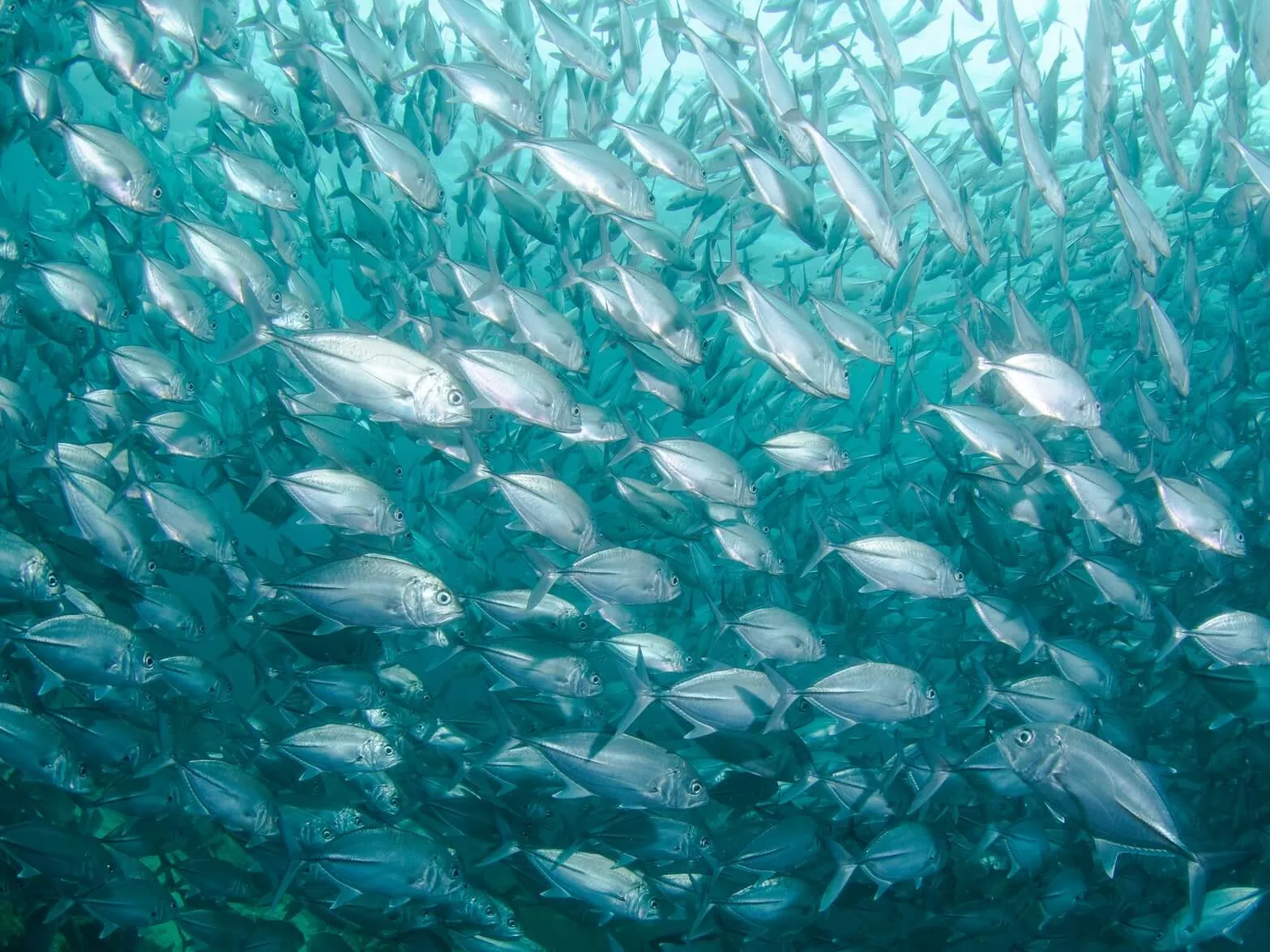Marine collagen
If you have been searching for collagen supplements online, you’ve probably noticed there are many different brands with different sorts of collagen. In this blog post, we will clear some things up for you about collagen and where it can be sourced from.

Collagen
Our skin, hair, nails, bones, cartilage, tendons, and teeth largely exist of the glue-forming protein collagen. The human body can produce this protein itself, but the collagen production decreases when we get older. This process starts around the age of 25 and accelerates significantly when women enter the menopause. Less collagen density in the skin means less firmness and will ultimately result in fine lines, wrinkles, and loose, dull skin. The skincare industry offers many types of supplements to make up for this loss of collagen. Research indeed reveals that taking the right kind of collagen supplements can significantly improve the complexion of your skin. In the beauty & health industry, the three most discussed sorts of collagen are:
Fish collagen
Bovine collagen
Vegan collagen
So, what are the differences? The similarities? The benefits?
Natural sources
First, it should be noted that natural collagen always comes from animals. Fish and cows are the best known sources, but collagen can be derived from other animals as well. Examples are pig and chicken collagen. The human body also makes this protein, but less and less as we age. Because of the fact that a collagen shortage causes visible skin-aging, collagen is taken out of other animal sources and offered in supplements. Usually this is a by-product since it mainly comes from the skin of these animals.
Vegan sources
Besides the natural sources, there are also some brands that offer vegan collagen prodcuts. How does this work? Vegan collagen does not naturally exist, but instead is genetically engineered. This type of collagen is most different from human collagen and relatively expensive. Additionally, most vegan skincare products only have a collagen-boosting function. They are designed to help the body produce collagen, but do not actually replace the loose and empty spaces in the skin layer with new collagen. This is a major difference between many vegan and natural collagen products. Besides, there also exist products that use natural collagen + have these ‘boosting’ ingredients as well, such as CelioGenix. Vitamin C supports the body’s own collagen formation, and for this reason this ingredient was added to CelioGenix as well.
Different collagen types
The exact source of collagen is important to know since it can contain a different combination of collagen types. There are 28 different types of collagen, of which Type 1, 2, and 3 are the most common ones. Marine collagen is extremely rich in collagen Type 1, which is famous for its anti-aging effect on the skin. About 90% of the collagen in our skin is of this type: our body is used to this type and can therefore easily process it. Bovine collagen contains this type as well and comes in the form of gelatin or in a hydrolyzed form. You may recognize gelatin as a dessert ingredient. Hydrolyzed collagen means it has been broken down into smaller particles (peptides) for better absorption. This is the form used in skincare supplements. Marine collagen usually comes in a hydrolyzed form as well, like the marine collagen in CelioGenix. It is even said that marine collagen can be broken down into even smaller peptides than collagen from other sources. The smaller the collagen particles, the easier it is for your body to absorb the collagen and transport it to the skin.
So what are exactly the differences between bovine and fish collagen? And what is marine collagen?
Bovine collagen is taken from the cow’s skin after slaughter and is therefore easily acceasible all over the world. This also means that it is a part of the bio industry which may be a reason to choose another source for some. Testing the collagen to see if it contains any antibiotics is advisable since these animals are usually fed and bred in captivity instead of in the wild.
Fish collagen can be categorized in collagen sourced from farmed or wild fish. Collagen from wild fish that lived in the ocean is called marine collagen. Collagen from farmed fish should also be tested for containing any antibiotics and one could take into consideration that living conditions might not have been good for the fish. This was one of the reasons that CelioGenix contains sustainably sourced marine collagen. The price of marine collagen is usually higher because of these reasons, but it is of high quality.
So, why did we, at CelioGenix, choose to use marine collagen?
Simple: because we found the cleanest, purest source. We only want to provide you with the highest quality collagen that is natural, can be easily absorbed, can be sustainably sourced, is rich in Type 1 collagen, and comes from a clean place on our planet. The difference with other collagen brands thus lies in the quality of the collagen.